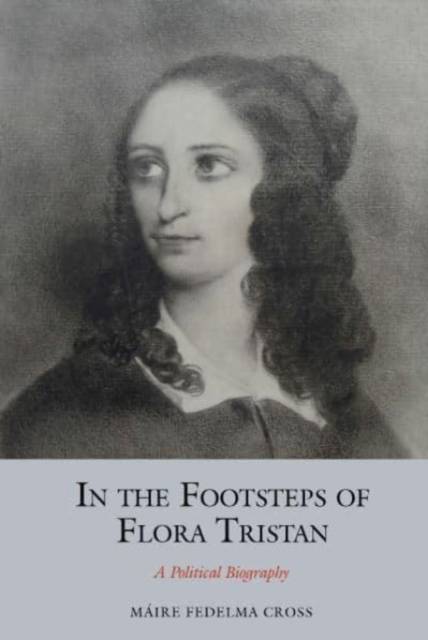
Je cadeautjes zeker op tijd in huis hebben voor de feestdagen? Kom langs in onze winkels en vind het perfecte geschenk!
- Afhalen na 1 uur in een winkel met voorraad
- Gratis thuislevering in België vanaf € 30
- Ruim aanbod met 7 miljoen producten
Je cadeautjes zeker op tijd in huis hebben voor de feestdagen? Kom langs in onze winkels en vind het perfecte geschenk!
- Afhalen na 1 uur in een winkel met voorraad
- Gratis thuislevering in België vanaf € 30
- Ruim aanbod met 7 miljoen producten
Zoeken
€ 93,45
+ 186 punten
Uitvoering
Omschrijving
In the Footsteps of Flora Tristan is the first ever study devoted to Jules Puech (1879-1957), and is a double biography that examines his life's work on Flora Tristan (1803-1844), feminist and socialist. It begins by examining newly found press reports of Flora Tristan during her lifetime and subsequently, then positions Puech's discovery of her, as a postgraduate student in Paris in the 1900s. It continues with an account of how he embarked on the first in-depth biography published in 1925. Puech was unmatched in his expertise as a writer on Flora Tristan having discovered her papers through his numerous political connections and having become a historian of Proudhon's legacy on the international aspirations of the labour movement. Together with his wife Marie-Louise Puech, née Milhau (1876-1966), suffragist feminist, he was a militant in the early twentieth-century pacifist movement that advocated international arbitration. His research on Flora Tristan was enriched by his other projects but was thwarted by the wars of 1914-1918 and 1940-1945. The circumstances of the long gestation of Puech's biography are drawn from his letters and papers, hitherto unseen. The correspondence curated brings a new understanding to the multi-faceted nature of Puech's activism and rate of progress in the publication of his findings on his subject, Flora Tristan.
Specificaties
Betrokkenen
- Auteur(s):
- Uitgeverij:
Inhoud
- Aantal bladzijden:
- 280
- Taal:
- Engels
- Reeks:
Eigenschappen
- Productcode (EAN):
- 9781802078824
- Verschijningsdatum:
- 1/08/2023
- Uitvoering:
- Paperback
- Formaat:
- Trade paperback (VS)
- Afmetingen:
- 156 mm x 234 mm
- Gewicht:
- 399 g

Alleen bij Standaard Boekhandel
+ 186 punten op je klantenkaart van Standaard Boekhandel
Beoordelingen
We publiceren alleen reviews die voldoen aan de voorwaarden voor reviews. Bekijk onze voorwaarden voor reviews.









